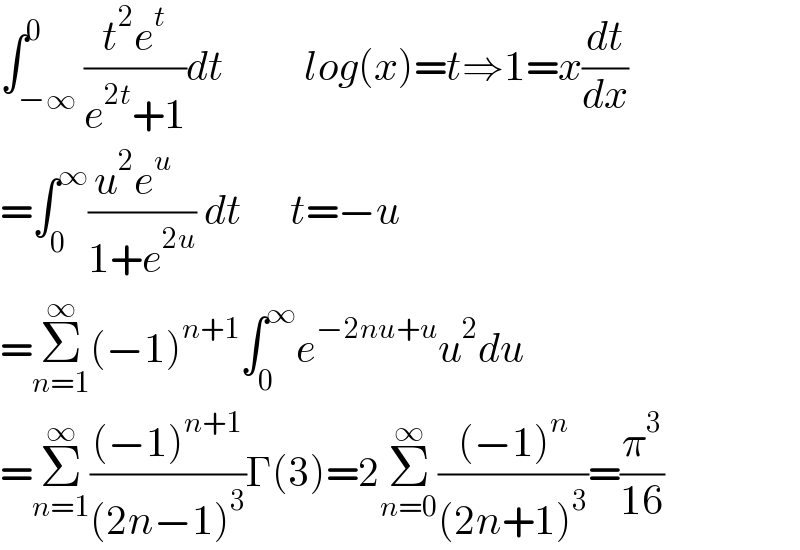
Question and Answers Forum
Question Number 133518 by Abdoulaye last updated on 22/Feb/21

Answered by mnjuly1970 last updated on 22/Feb/21

Answered by Dwaipayan Shikari last updated on 22/Feb/21

Commented by Dwaipayan Shikari last updated on 22/Feb/21

Commented by Abdoulaye last updated on 22/Feb/21

Commented by Dwaipayan Shikari last updated on 22/Feb/21

Commented by Abdoulaye last updated on 22/Feb/21

Commented by Abdoulaye last updated on 23/Feb/21

